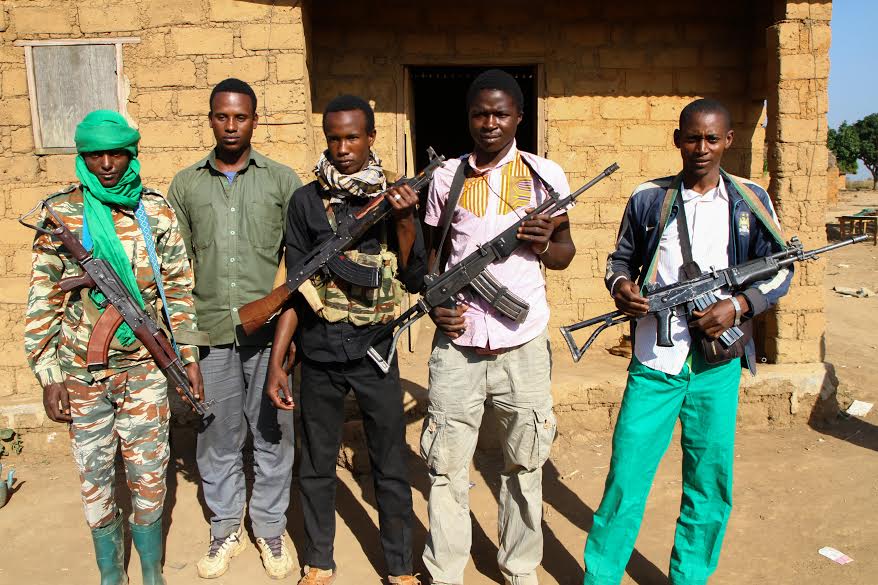Who are the 3R, Central African Republic's 'new rebel group'?
IBTimes UK looks at the armed group accused of large-scale atrocities in the country's northwest.








A human rights body has warned of the emergence of a new rebel group in the conflict-ridden Central African Republic (CAR). With most eyes on the ongoing violence in the centre of the CAR, particularly in Kaga-Bandoro, Bria and Bambari, Human Rights Watch (HRW) says minimal attention has been paid to a recently formed armed group called Return, Reclamation, Rehabilitation, or 3R.
Under the command of a self-proclaimed general, Sidiki Abass, the group arrived in the country's northwest in November 2015 and held meetings in several villages around Koui. They claimed 3R's aim was to ensure the protection of the Peul community from attacks by anti-balaka militia, one of the two warring groups in the country's bloody sectarian violence.
The anti-balaka, under the command of their own self-proclaimed general, Abbas Rafal, have been accused of killing Peul civilians and fighters in the region. Less than six months later, however, 3R members were allegedly committing attacks on villages in the Koui sub-prefecture in retaliation for anti-balaka activity.
The armed group currently controls a sub-prefecture on the Cameroonian border and HRW is concerned that the group may seek to increase its hold on territory. HRW claims the group has committed large-scale atrocities, displacing some 17,000 people.
"The Central African Republic is on the international agenda, but its neglected northwest territory now presents an emerging crisis," said Lewis Mudge, Africa researcher at HRW. "The 3R armed group, which originally portrayed itself as a protector of the Peul people, has used its increased strength to expand abusive attacks."
Rebels accused of unlawful killings and rapes
Between 21 and 27 November, the campaign group said at least 50 civilians were killed in the Bocaranga and Koui sub-prefectures in Ouham Pendé province. Witnesses described how 3R rebels shot and killed civilians, raped women and girls, and pillaged and burned villages.
HRW estimates the number of 3R's victims was "probably higher", but is so far unable to confirm this due to limited access and security risks.
Earlier, in September, the group is alleged to have carried out attacks on the town of De Gaulle – the sub-prefecture capital, with a population of 20,000 - and other villages in the area. HRW has documented 17 civilians who were killed during or just after the attack. Many are still missing.
People monitoring sexual violence in the area, who did not want to be identified due to security concerns, said they received reports of rapes of 23 women and girls by 3R fighters during and after the De Gaulle attack. One of the rebel group's alleged victims, 30-year-old "Blandine", who lives in De Gaulle, told her story. Recalling how 3R fighters broke into her home, the young woman explained:
One said, 'Where is your husband?' I said that he was not there (...) One of them cocked his gun and pointed it at me and said, 'We are going to have sex with you.' He threw me on the ground and [one of the rebels] raped me. Another was waiting for his turn, but there was shooting outside while the first one was finishing, so when he was done they both left. My two younger children were right beside me, crying.
3R denied they have committed any abuses, including unlawful killings or rapes. IBTimes UK was unable to reach Abass for comment at the time of writing.
HRW adds that United Nations peacekeepers of the MINUSCA mission, which has 12,870 soldiers in the country, including about 100 combat-ready soldiers in Bocaranga and 100 in De Gaulle, are unable fully to protect civilians.
© Copyright IBTimes 2025. All rights reserved.






















